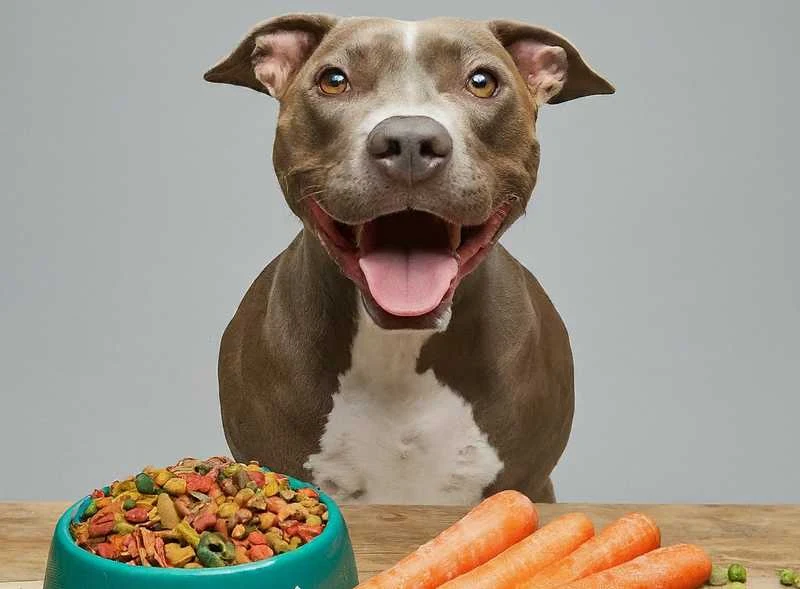Just like humans, dogs can also experience digestive issues. Although dogs may eat anything in sight, their digestive systems may not always agree. Choosing the right food is crucial for these sensitive pups, and navigating the options can feel overwhelming. Therefore, let's explore the world of canine cuisine and find the ideal diet for your furry friend.
Understanding the Culprits
Several factors can contribute to a dog's sensitive stomach. Food allergies or sensitivities are common culprits, with ingredients like beef, chicken, dairy, wheat, and soy often triggering digestive distress. Additionally, low-quality ingredients, artificial additives, and fillers can be difficult for some dogs to digest.
Navigating the Food Aisle
With countless dog food options available, finding the perfect one for your sensitive pup requires careful consideration. Here are some key features to look for:
Limited Ingredient Diets
These formulas contain fewer ingredients, making it easier to identify and avoid potential allergens. Look for options with novel protein sources like lamb, venison, or fish, paired with easily digestible carbohydrates such as sweet potato or brown rice.
Hydrolyzed Protein Formulas
These specialized diets break down proteins into smaller molecules, making them less likely to trigger allergic reactions. While often pricier, they can be a lifesaver for dogs with severe allergies.
High-Quality Ingredients
Prioritize foods with whole, natural ingredients and avoid those with artificial additives, fillers, and by-products. Look for brands that emphasize quality sourcing and transparent ingredient lists.
Digestive Support
Select foods that are enriched with prebiotics and probiotics to promote a healthy gut microbiome. These beneficial bacteria assist in digestion and nutrient absorption, resulting in a healthier digestive system.
Transitioning to a New Diet
Once you've found the perfect food, it's important to transition your dog gradually to avoid further digestive upset. Start by mixing a small amount of the new food with their current food, gradually increasing the ratio over several days. Monitor your dog closely for any adverse reactions during the transition.
Beyond Food: Additional Tips
While choosing the right food is crucial, other factors can contribute to digestive health. Ensure your dog gets regular exercise to promote healthy digestion and reduce stress, which can exacerbate stomach issues. Also, be mindful of treats and table scraps, as these can easily undo your dietary efforts. Opt for healthy, hypoallergenic treats or offer small pieces of fruits and vegetables that are safe for dogs.
Exploring Specific Food Options
While the general guidelines above offer a solid foundation, let's explore some specific dog food brands that consistently receive positive reviews for their suitability for sensitive stomachs:
- Wellness Simple
- Blue Buffalo Basics
- Purina Pro Plan Sensitive Skin & Stomach
- Hill's Science Diet Sensitive Stomach & Skin
- Royal Canin Veterinary Diet Gastrointestinal
Remember, these are just a few examples, and the best food for your dog will depend on their individual needs and preferences. Consult your veterinarian for personalized recommendations and guidance.
The Importance of Patience and Observation
Finding the perfect food for your sensitive dog is a journey, not a destination. It requires patience, observation, and a willingness to experiment. Keep a close eye on your dog's response to each new food, noting any changes in their digestion, energy levels, and overall well-being.
Be aware of possible food sensitivities that may not show up right away. Some dogs may develop sensitivities over time, so it's important to stay alert and adjust their diet as necessary. By prioritizing your dog's digestive health and providing them with proper nutrition, you can ensure they lead a happy, healthy, and comfortable life.
Read also: Homemade Dog Food: The Complete Guide
Additional Considerations
- Homemade Diets: If you plan to feed your dog a long-term homemade diet due to their sensitive stomach, it is important to consult with your veterinarian first. They can advise you on how to ensure that the diet meets all of your dog's nutritional needs.
- Portion Control: It is important to keep in mind that portion control is crucial for all dogs, particularly those with sensitive stomachs. To avoid digestive issues, it is essential to follow the feeding guidelines provided on the dog food packaging and prevent overfeeding.


